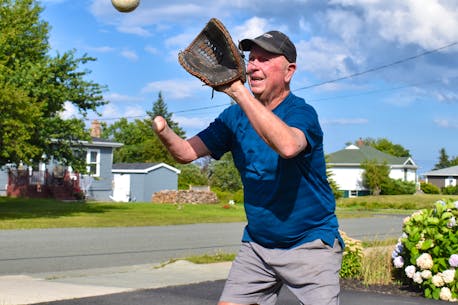NORTH SYDNEY, N.S. — Disappointed isn't a strong enough word to describe how a Cape Breton disability advocate feels about the announced Canadian Disability Benefit.
The benefit, announced as part of the federal government's budget on April 16, will provide people who are eligible with up to a maximum of $2,400 yearly, in payments of $200 monthly.
Catherine Rivers, a person with disabilities and a cancer survivor, said it is well below what the community needs. It is also below what they thought the benefit would be — roughly $1,000 a month as a guaranteed income supplement.
First announced during a speech to the throne in 2020 about Canada's Disability Action Plan, Rivers said waiting five years to hear what the benefit would be "felt like a slap."
"(It) seemed like really important legislation. This seemed like something that was really going to be a game changer because poverty and disability are inextricably linked," said Rivers, who has been advocating for disability rights for more than a year.
"(Then) I watched the budget and it was like my stomach fell out. Like, my heart was in my throat. I couldn't believe what I was hearing. It felt like a slap. And the disability community, understandably, had a lot of feelings. They ranged from, like me, absolute disbelief in incredulity to deep despair."
SURPRISED
The benefit amount is much lower than advocates and policy researchers thought it would be. The announcement also came as a surprise to many, including Canadian Centre for Policy Alternatives researcher Katherine Scott.
"We were a bit surprised (when it was announced)," Scott said. "It wasn't clear or certainly the government didn't indicate beforehand that some of the parameters for the new benefit would appear in this budget."
Scott said they also were "disappointed" in the level of support being offered and the eligibility requirement, which involves getting a doctor to fill out a form for Disability Tax Credit eligibility.
Scott said that the doctor shortage and the definitions of chronic disability make it difficult for some people to get the disability tax credit. She also said the community wants a process that isn't so medically focused where doctors have to be the "gatekeepers."
"There have been decades of advocacy around the issues of poverty among people with disabilities leading up to this … there's a big hole in Canada as well in the social safety net, right? Like, we've got programs for kids and seniors and so forth and this particular group has been ignored," she said.
"The disability community has been very clear about the need to use an inclusive definition of disability and to build a process where all people who are in low-income households can apply and get support."

POVERTY AND DISABILITY
In an article Scott wrote for Monitor Magazine in December 2023, she gave an overview of poverty and people with disability. Some of the data provided in the article are:
• The employment gap between people with disabilities and those without is more than 20 per cent
• 1.5 million Canadians with disabilities lived in poverty in 2021
Poverty rates in Canada in 2021 were high for women at 17.6 per cent and higher for seniors at 19.3 per cent. For people with disabilities, this rate was 37.6 per cent and it isn't believed to have gotten better.
"Most provinces in Canada have disability benefits that are between 30 and 50 per cent of the poverty line," said Rivers, who currently gets provincial government disability supports.
"What this benefit was touted as, it would help people cover (medications, food, living expenses). It would make living life more dignified … during the five years it has taken to get here, the government made MAID (medically assisted suicide) track 2 available and made dying with dignity more accessible. I know people with disabilities who have given up waiting for help and have explored MAID."

PROVINCES
Of the recommendations made by the Canadian Centre for Policy Alternatives, based on input from the disability community, there was only one that hasn't been included. This has to do with the federal benefit plan not impacting disability supports from the provinces or territories.
Currently, the provinces and territories are responsible for disability supports like home care and income supplement. When the federal government disability benefit starts, there is no safeguard in place that would prevent the provinces from cutting current supports due to the national one.
"There's a line saying that the federal government hopes that the provinces will pass on these monies to the poorest of the poor, but there's no guarantee. That's tremendously troubling," said Scott.
"The feds have put forward this modest benefit and they're not prepared to step into the space to perhaps take over and, you know, create a single unified system of income support for people with disabilities so that struggle goes on."
Scott said there are other details that need to be worked out with the disability benefit plan and hopes changes can be made before it is finalized to make it more suitable to the need.
- Nicole Sullivan is a multimedia journalist with the Cape Breton Post. Follow her on X (Twitter) @CBPostNSullivan.













